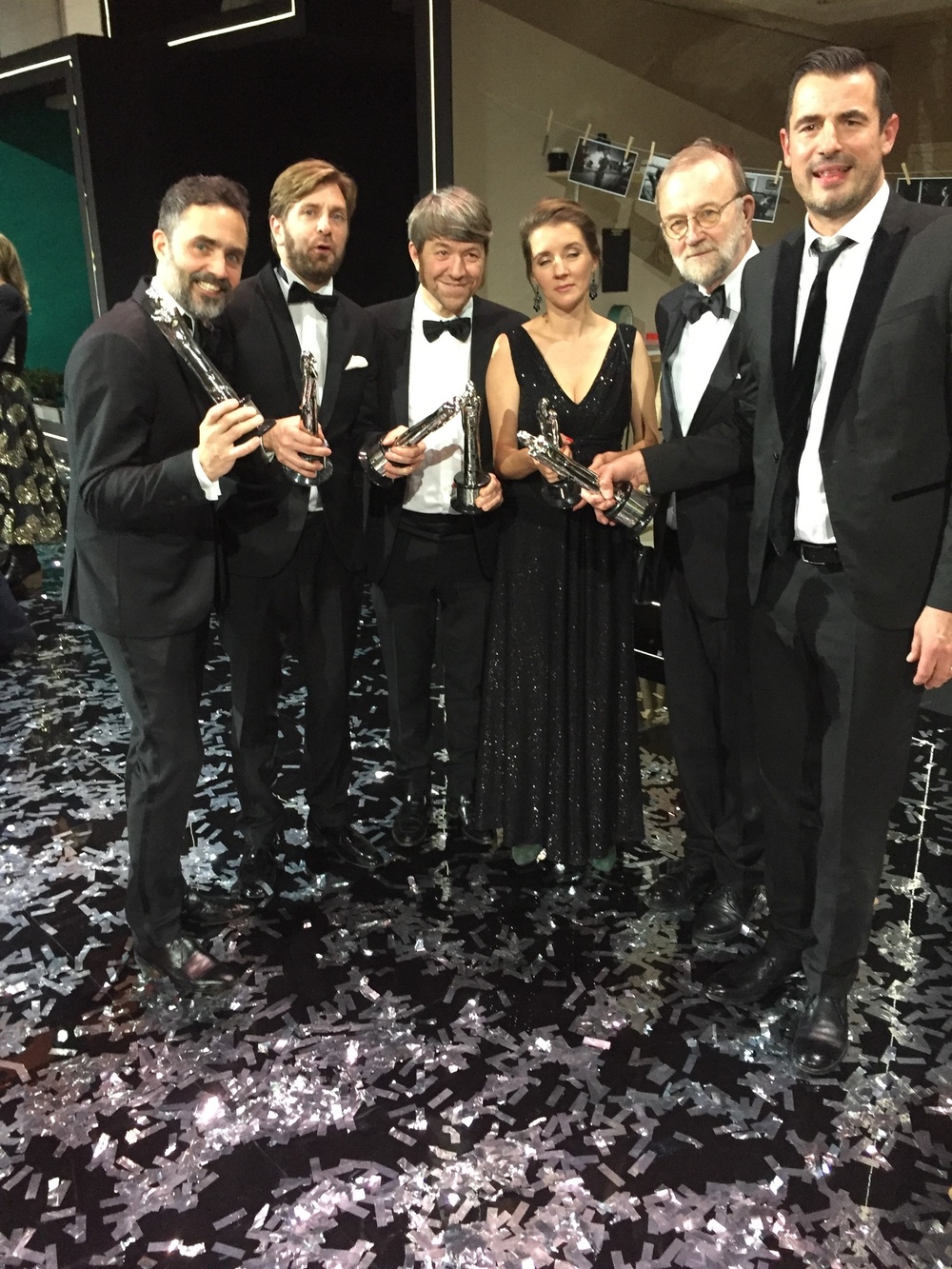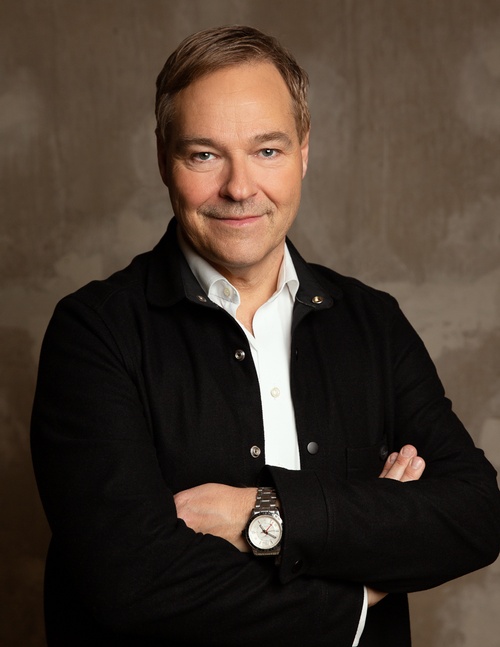Triangle of Sadness could win four European Film Awards tonight
 Five years ago, The Square won a full six statuettes at the European Film Award gala. Photo: Jan Göransson
Five years ago, The Square won a full six statuettes at the European Film Award gala. Photo: Jan GöranssonToday, Saturday, 10 December, sees the 35th European Film Awards, presented by the European Film Academy. Ruben Östlund’s Triangle of Sadness is nominated for four statuettes, and Ali Abbasi’s Danish-German-Swedish-French Holy Spider could win the same number. For the first time, the whole ceremony can be viewed on Filminstitutet.se.
Triangle of Sadness, directed by Ruben Östlund and produced by Erik Hemmendorff and Philippe Bober, is nominated in the categories for Best Film, Best Director, Best Screenwriter and Best Actor (Zlatko Buric). Five years ago, Ruben Östlund’s The Square won no less than six European Film Award statuettes. Östlund and his team’s first outing in this context was with Tourist (Turist) in 2014, when the film was nominated in two categories.
The co-production Holy Spider, directed by Ali Abbasi and co-produced by Eva Åkergren/Nordisk Film Production, is nominated in four categories: Best Film, Best Director, Screenwriter and Best Actress (Zar Amir-Ebrahimi). Four years ago, Abbasi’s Swedish film Border (Gräns) was nominated in five categories. The film won in the Best Visual Effects category, with Peter Hjorth receiving the award.
A further two Swedish co-productions are nominated: the Danish-Icelandic-Swedish Godland by Hlynur Pálmason (co-producer Mimmi Spång/Garagefilm) for which actor Elliot Crosset Hove has been nominated, and the Danish-Swedish A House Made of Splinters by Simon Lereng Wimont (co-producer Tobias Janson/Story) which has been nominated for Best Documentary Film.
This year, the award ceremony can be viewed live on Start (filminstitutet.se) and European Film Awards - European Film Awards
The European Film Award ceremony is held in December every year – every other year in Berlin, and every other year in another European city. This year the ceremony is being hosted by Reykjavik. The European Film Academy currently comprises 4,400 members, who annually select nominated films and filmmakers both in front of and behind the camera. They also select the winners.
European Film Award ceremony and European Film Academy started by Swedees
One fact that many people may be unaware of, is that the European Film Award ceremony and the European Film Academy were both started by Swedes, including Ingmar Bergman. Film producer and author Bengt Forslund was on the planning committee and Aina Bellis, a former employee of the Swedish Film Institute, became the Secretary General. The Senate Department for Culture in Berlin was looking for a European equivalent to the Academy Awards ceremony, and the first European Film Award ceremony took place on 1 December 1988. Some of the notable names in attendance were Ingmar Bergman – who received a Lifetime Achievement Award, Marcello Mastroianni, Gina Lollobrigida, Pedro Almodóvar, Bernardo Bertolucci, Richard Attenborough, Anthony Hopkins, Guiletta Mansina and Krzysztof Kieslowski. The following year, 1989, the European Film Academy was formed, and under the auspices of Aina Bellis, Ingmar Bergman became the Academy’s first President and Wim Wenders its first chairman. Other representatives of Swedish film who were involved with the Academy’ work early on include Max von Sydow, Erland Josephson, Ewa Fröling and Liv Ullmann.
More about the ceremony:
European Film Awards - European Film Awards
About The Swedish Film Institute
The Swedish Film Institute is a collective voice for film in Sweden, and a meeting-place for experiences and insights that elevate film on all levels. We preserve and make available Sweden’s film heritage, work to educate children and young people in film and moving images, support the production, distribution and screening of valuable film, and represent Swedish film internationally. A broad diversity of narratives establishes discussions and insights that strengthen the individual and our democracy. Together, we enable more people to create, experience and be enriched by film.
Contacts
